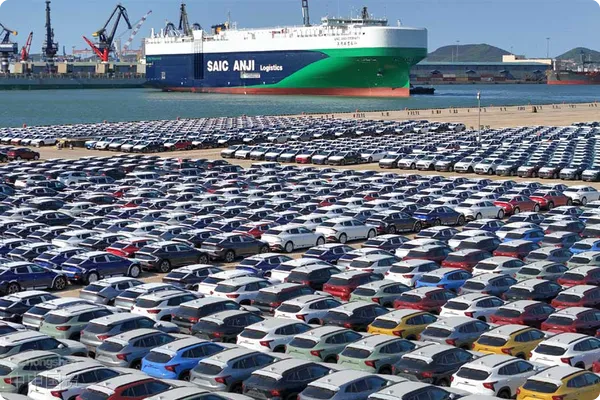- Shanghai Zhongshen International Trade Co., Ltd. - Two decades of trade agency expertise.
- Service Hotline: 139 1787 2118

On August 26, the Canadian government announced a major measure: starting October 1 this year, it will impose a 100% surtax on all electric vehicles originating from China. This policy will significantly raise the cost of Chinese-made EVs entering the Canadian market, with the additional tax applied on top of the existing 6.1% tariff. The surtax covers not only pure electric vehicles but also plug-in hybrids, hybrid vehicles, and fuel cell vehicles, including passenger cars, trucks, buses, and vans.
In addition to EVs, the Canadian government announced that starting October 15, it will impose a 25% tariff on steel and aluminum products from China. These measures reflect Canadas tougher stance on trade policy, particularly in tightening restrictions on trade with China.
Notably, most Chinese-made EVs currently exported to Canada are supplied by Teslas Shanghai factory. However, as a U.S. company, Tesla can circumvent the new tariffs by supplying vehicles to Canada from its U.S. or German production bases. In contrast, other Chinese EV brands have limited market penetration in Canada, though recent reports suggest BYD is planning to enter the Canadian market and is in talks with local dealers to set up distribution channels. Canadas surtax may be seen as a preemptive move to curb the potential threat of Chinese-made EVs entering its market.
Data shows that since Tesla began shipping Shanghai-made EVs to Canada, imports of Chinese cars into Canada have surged. In 2023, vehicle imports through the Port of Vancouver grew by 460% year-on-year to 44,356 units. This growth trend highlights the rapid expansion of Chinese-made EVs in Canada and underscores the targeted nature of the tariff policy.
Regarding the tariff hike, Cui Dongshu, Secretary-General of the China Passenger Car Association, stated that this move has a massive impact on Chinese EVs entering the Canadian market, effectively closing the door. He suggested that establishing overseas production bases to manufacture EVs elsewhere before entering Canada might be a viable workaround. The Canadian Broadcasting Corporation (CBC) also noted that Canadas move aligns with the U.S., which has urged Canada to maintain consistency on tariffs for Chinese EVs and other products. This reflects coordination between the two North American countries in responding to Chinas manufacturing expansion.
More broadly, Canada also plans to potentially impose tariffs on Chinese batteries, battery components, semiconductors, critical minerals, metals, andsolarA 30-day consultation on imposing tariffs on goods such as solar panels has been initiated. This move will further escalate tensions between China and Canada in the high-tech and manufacturing sectors.
In response, the spokesperson of the Chinese Embassy in Canada promptly expressed strong dissatisfaction and firm opposition to Canadas measures, stating that such actions harm others without benefiting oneself, and pledged to take all necessary measures to safeguard the legitimate rights and interests of Chinese enterprises. Subsequently, the spokesperson of Chinas Ministry of Commerce also responded to media inquiries regarding Canadas proposed restrictions on Chinese electric vehicles and other goods, further clarifying Chinas stance and position.
With the introduction of these measures, China-Canada trade relations may face more severe challenges. For Chinese electric vehicle manufacturers, finding countermeasures in the new trade environment could become key to future development. The long-term impact of Canadas move will also depend on how both countries adjust their strategies and positions in the complex international trade landscape.
Related Recommendations
? 2025. All Rights Reserved. 滬ICP備2023007705號-2  PSB Record: Shanghai No.31011502009912
PSB Record: Shanghai No.31011502009912









